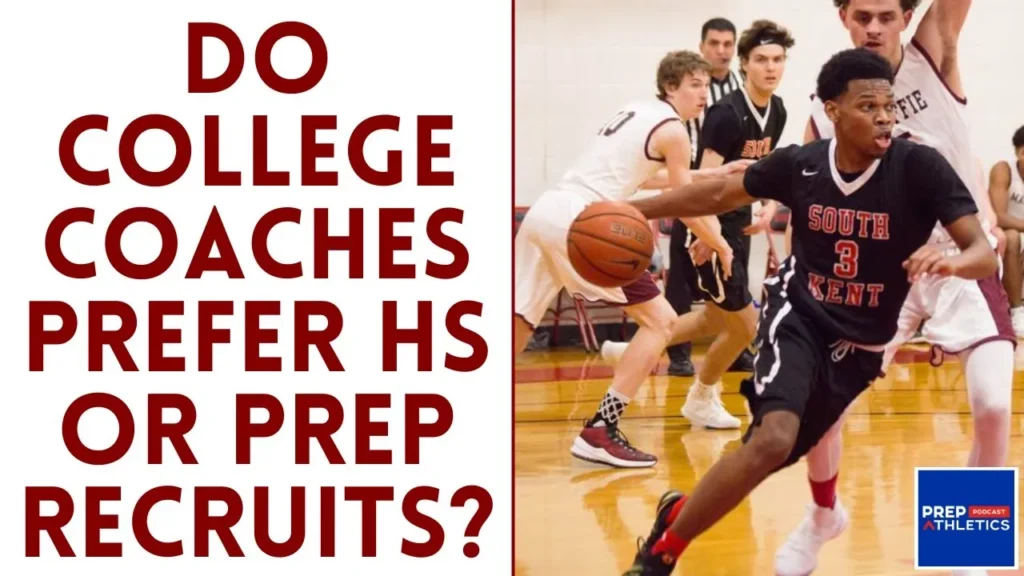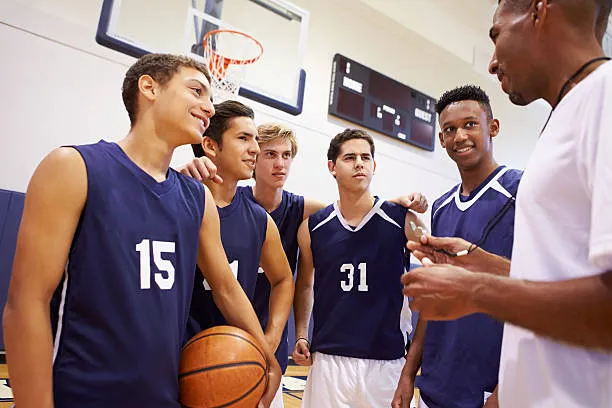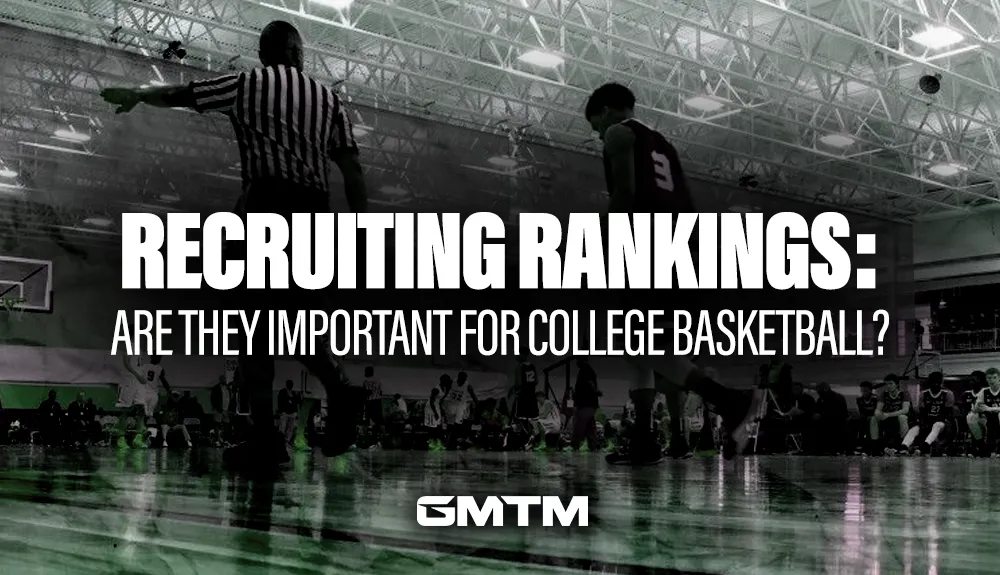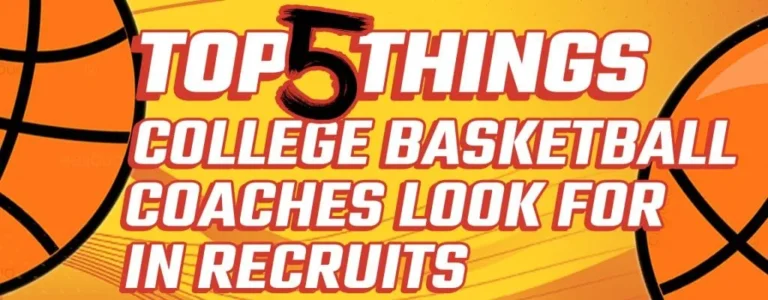Table of Contents
Introduction
So, you’ve been dreaming about playing college basketball and possibly making it big one day. It’s a thrilling goal, but let’s be honest—it can also be pretty overwhelming. The journey from high school hoops to the collegiate court involves more than just nailing those three-pointers and perfecting your crossover dribble. It’s a whole different game out there!
That’s why getting insider advice from college basketball coaches can be a game-changer. These coaches see it all—the talent, the hard work, the mistakes, and the successes. They know what it takes to stand out and make it to the next level. But here’s the catch: they don’t always spill their secrets unless you ask. And that’s where this guide comes in.
We’re diving deep into what coaches really think and what they look for in high school players. Whether you’re trying to catch a coach’s eye or just want to understand what’s needed to thrive in college basketball, this guide will give you the lowdown on how to prep yourself for the big leagues. From improving your skills and conditioning to building relationships and navigating college life, we’ve got the scoop to help you level up.
So, if you’re serious about your basketball future and eager to learn how to impress college coaches, keep reading. We’re about to break down everything you need to know to boost your chances and make your college basketball dreams a reality. Let’s get into it!

Understanding the College Basketball Landscape
Differences in Play Style
If you’re dreaming of making it to college basketball, it’s crucial to understand how the game changes from high school to the collegiate level. The speed, intensity, and strategies are all on a different level.
In high school, you might shine as a star player, dominating with your scoring or flashy moves. But in college, the game speeds up, defenses become tougher, and every team relies on more complex strategies. You’ll need to be quick on your feet, think several plays ahead, and adapt to new styles of play. Starting to adjust your game now can help you transition more smoothly and avoid any surprises when you step onto the college court.
Recruitment Process Insights
The recruitment process can be a bit of a mystery, but understanding what college coaches are looking for can give you a significant edge. Coaches aren’t just watching your performance on the court; they’re also evaluating your attitude, work ethic, and how well you take coaching and feedback.
It’s important to be aware of common pitfalls, such as neglecting your academics or failing to show consistent effort. Coaches are looking for players who not only excel in basketball but also fit well with their team’s needs and can handle the pressures of college life. By avoiding these mistakes and focusing on what coaches truly value, you’ll improve your chances of getting noticed and recruited.
Skills Development
Technical Skills
When it comes to college basketball, mastering the basics is non-negotiable. At the high school level, you might get by with raw talent, but in college, fundamentals are the foundation of your success. This means perfecting your shooting technique, refining your dribbling skills, and honing your defensive play.
College coaches expect players to have a solid grasp of these fundamentals, so now’s the time to focus on them.
Practice regularly to improve your shooting accuracy, work on your ball-handling to navigate defenses with ease, and develop your defensive skills to stop opponents in their tracks. Position-specific skills are also crucial—whether you’re a guard, forward, or center, mastering the skills unique to your position will make you more versatile and valuable to a college team.

Physical Conditioning
College basketball isn’t just about skills; it’s also about being in peak physical shape. The game demands high levels of strength, speed, and endurance, and the competition is fierce. To stand out, you need to be physically prepared for the rigors of college play.
Strength training is essential for building the power you need to compete at a higher level. Incorporate exercises that enhance your overall strength and agility. Endurance training will help you maintain peak performance throughout the game and season. Additionally, staying injury-free is critical. Focus on exercises that improve flexibility and prevent common injuries, so you can stay on the court and avoid setbacks.
Mental Preparation
The mental side of basketball is often overlooked but is just as important as physical conditioning. In college, you’ll face more pressure, more intense competition, and higher expectations. Developing a strong mental game is key to handling these challenges.
Work on your game intelligence by studying plays, understanding your opponents, and improving your decision-making on the court. Building mental toughness is equally crucial—learn how to stay focused under pressure, bounce back from setbacks, and maintain a positive mindset throughout the season. By preparing mentally, you’ll be better equipped to handle the ups and downs of college basketball and perform at your best.
Building Relationships
Coaching Relationships
When you’re aiming for a spot on a college basketball team, building strong relationships with coaches is crucial. College coaches are not only looking at your skills but also at how you interact and communicate with them.Effective communication is key. Be open and honest with coaches about your goals, aspirations, and any concerns you might have. Show them that you’re eager to learn and willing to take feedback seriously. Building trust with your current and potential coaches can make a big difference in how you’re perceived. Show up consistently, work hard, and demonstrate that you’re reliable and committed.

Team Dynamics
Getting along with your teammates is just as important as impressing the coaches. College basketball is all about teamwork, and your ability to fit into the team’s dynamic can significantly impact your chances of success.
Being a team player means contributing positively, whether you’re on the court or off it. Support your teammates, share the ball, and work together to achieve team goals. Handling conflicts gracefully and building strong relationships with your peers will help you fit in and thrive within the team. Coaches notice players who enhance team chemistry and contribute to a positive team environment.
Academic Balance
Transitioning from high school to college basketball involves more than just adjusting to a higher level of play. You’ll also need to manage a new academic workload while juggling your athletic commitments. Balancing these responsibilities effectively is essential for your success both on and off the court.
Time management becomes crucial in college. With practices, games, and travel, finding time for studying and completing assignments can be challenging. Create a schedule that allocates specific times for studying, practice, and relaxation. Prioritize your tasks to stay on top of your academics while maintaining peak performance in your sport.
Academic support resources are available to help you succeed. Many colleges offer tutoring services, academic advising, and study groups designed specifically for student-athletes. Take advantage of these resources to keep up with your coursework and ensure you’re meeting your academic goals.
Social Integration
College is a significant life transition, and adjusting to this new environment can be just as important as adapting to college basketball. Building a social network and integrating into campus life can enhance your overall experience and well-being.
Adapting to college life involves more than just fitting in on the court. Engage with your peers, join clubs or organizations, and participate in campus events. These activities will help you make friends and feel more connected to your new environment.
Building a support network is also vital. Seek out mentors, both within and outside of your athletic program, who can offer guidance and support. Having a solid support system can help you navigate the challenges of college life and keep you motivated throughout your journey.

Long-Term Career Considerations
Professional Opportunities
As you work towards making a name for yourself in college basketball, it’s also important to think about your future beyond the sport. Whether you aim to play professionally or explore other career paths, having a long-term plan is essential.
Beyond College Basketball: Not every athlete makes it to the professional level, and that’s okay. Many successful players transition into careers in coaching, sports management, or media. Explore various career options related to basketball and start building skills that will be valuable in these roles. Networking with professionals in these fields can also open doors for future opportunities.
Networking: Building a strong professional network is crucial for career development. Connect with coaches, alumni, and industry professionals who can offer advice, mentorship, and job opportunities. Attend networking events, workshops, and seminars to expand your connections and learn about potential career paths.
Goal Setting
Having clear goals can guide your journey and help you stay focused on what you want to achieve both in basketball and beyond. Setting and working towards short-term and long-term goals can provide direction and motivation.
Short-Term Goals: Focus on immediate objectives that will help you improve and succeed in college basketball. These might include improving specific skills, achieving academic milestones, or making a significant impact on your team. Regularly review and adjust these goals as you progress.
Long-Term Vision: Develop a vision for your future beyond college basketball. This could involve pursuing a professional career, exploring other interests, or planning further education. Having a long-term plan will help you stay motivated and make informed decisions about your career path.
Conclusion
As you embark on your journey from high school to college basketball, remember that preparation is key to your success. This isn’t just about perfecting your jump shot or mastering a new play; it’s about understanding the broader picture and positioning yourself for a successful transition.
Recap: We’ve covered essential advice from college coaches on how to navigate this challenging transition. From adapting to the faster pace and more complex strategies of college basketball to mastering your skills and physical conditioning, every step you take will bring you closer to achieving your goals. Building strong relationships with coaches and teammates, balancing your academic and athletic responsibilities, and planning for your future career are all crucial elements of this journey.
Encouragement: Stay focused, work hard, and embrace the opportunities that come your way. The road to college basketball can be demanding, but with the right mindset and preparation, you’ll be well-equipped to handle the challenges and make the most of your experience. Keep pushing forward, stay positive, and remember that every effort you put in now will pay off in the long run.
We hope this guide has provided valuable insights and practical advice to help you on your path. Best of luck with your college basketball aspirations—here’s to reaching new heights and achieving your dreams!




